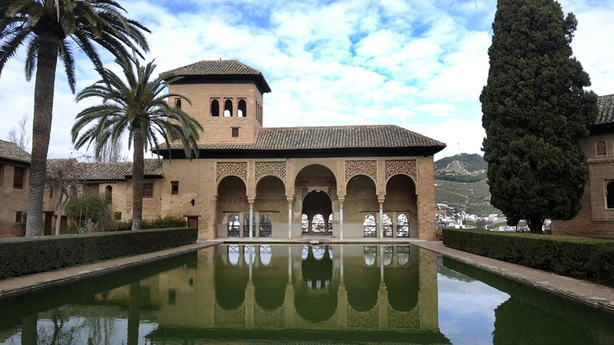Sameer Rahim's debut novel features a young British Muslim couple whose first year of marriage is challenged by their diverging perspectives on religion and gender roles and how to live their lives in secular London.
Ashgar is a 19-year old student and Zahra is 22, and she works in a bank, following a privileged Cambridge education. Both are members of the same East African Muslim community. They fall in love and marry, despite some reservations on the part of their families. Ashgar’s father urged a move to the recently-constructed mosque, the so-called 'new mosque' while Zahra’s father stubbornly worships at the old mosque. He refuses, although not vehemently so, to attend his daughter’s wedding at the newer place of worship.
The couple are not so hidebound by family tradition that they cannot surmount such family tensions which do not flare into anything significant by way of conflict. The marriage ceremony is a reasonably joyous affair before the honeymoon, which is spent in Andalusia in southern Spain. The couple use the ancient city of Granada as their base where they visit the splendid Alhambra, the Moorish palace which was once the seat of the Andalusian Caliphate. That is until the reconquista, when King Ferdinand and Queen Isabella reconquered Andalusia and re-imposed Christianity in the fifteenth century.
In Granada they accidentally make the acquaintance of Tariq, a zealous young Spanish Muslim convert (or 'revert' as he describes himself). At Tariq's urging, the pair take a bus to Córdoba to visit that city's famous mezquita, the Catholic cathedral which was constructed, utilising the previous mosque structure.
Once at the mezquita the following day, the newly-weds duly witness the sudden dramatic entrance of Tariq, accompanied by two fellow believers, who lie prostrate to pray to Allah, despite the fact that the mezquita has for centuries been a Christian place of worship. A security guard becomes aware of the men's behaviour, deemed a provocative offence against public order. The men are rushed by police who have been summoned.

There is a staged air to these proceedings, the enforced melodrama of the incident does not quite wash. However, one could argue that these are young people, one not even out of his teens. Such arguments might be flying around, as symptoms of unease - it's all new and strange to them, marriage, cohabitation, the unfamiliar European country with its strange reminders of what they know back home. This may well be so, but the author appears to be putting his newly-weds in locations formerly associated with Muslim rule to facilitate the rehearsal of old arguments. A dash of contemporary sectarian tension in the shape of the Mezquita incident is duly added for effect.
Moreover, the incident has the unfortunate effect of reducing his protagonists’ stature at a perilously delicate early stage. In the process, Ashgar, who is inclined to fundamentalism, and Zahra who is Cambridge-educated and individualistic become mouthpieces for conflicting opinions. The couple briefly separate in anger but reconcile before shaking the dust of Cordoba off their feet to rush back to Granada. With its air of lost Islamic magnificence, Granada too is a bit of a downer. Whatever about Zahra, the city has made Ashgar melancholy and the honeymoon is a bit of a disaster in short.
One cannot deny that such reactions to the former seats of Islamic eminence during such a visit on the part of Muslims, British or otherwise, are entirely possible. Such reactions might well result in bickering and irritation but your reviewer does not remain convinced by the rather po-faced presentation.

It is not that Sameer Rahim does not know how to tell a story, he has mastered narrative flow and he is a keen observer. But there is something contrived in the early chapters about the couple's arguments about Halal (food which adheres to Islamic law, as defined in the Koran) appropriate dress, and sexual etiquette prior to and within marriage. This is merely how your reviewer found it, another reader might find the courtship rituals and disagreements of enormous interest.The problem is what the author has interpolated, what he has placed centre-stage in terms of rather grafted-on debate.
On the other hand, Rahim's 294-page novel imparts its informativeness easily and it is topical, as Facebook and WhatsApp raise their ubiquitous heads. Such elements do not necessarily make for great fiction.
However, the tale does steady itself well after this lumbering, cumbersome stuff that cripples the early scenes. Indeed it settles into a kind of kitchen- sink Muslim family drama, about as doggedly realistic as two best-selling family sagas of recent years, Jonathan Franzen’s The Corrections or Christos Tsiolkas' The Slap. Indeed you could imagine Ken Loach or Stephen Frears making a very good movie based on its story, adapted perhaps by Hanif Kureishi.
If you are a certain kind of reader in search of more soul, however, you might find yourself longing for the slender, opaque poetics of Nadeem Aslam. Aslam, it should be said, is of a different generation of UK-based writers of Asian origin and the comparison is probably invidious.
Sameer Rahim might learn from Aslam, however, he may need to come a bit more slant-wise at his material, leave more gaps, more unsaid stuff. He might need learn to dispense with such callow exchanges that, at times, seem pinned on to his characters. Other than that, he can tell a story with a keen documentary or quasi-journalistic ability, which most readers may well prefer anyway. Moreover, he appears too to be in full command of the immensely tricky London territory which he surveys.







